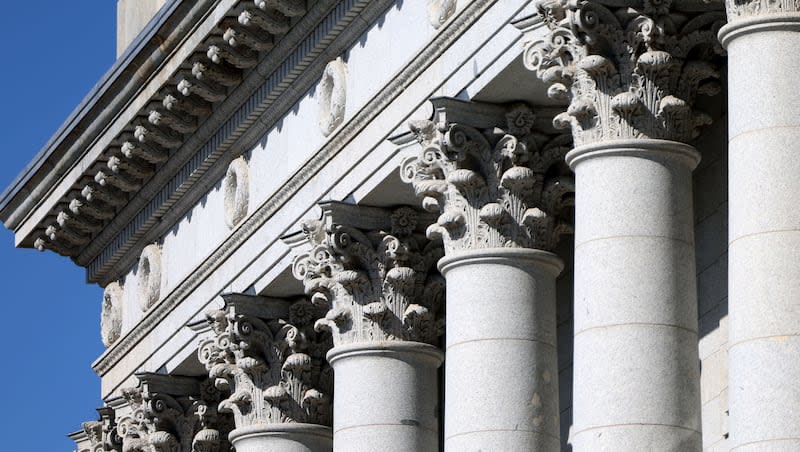Utah legislative auditors recommend that this small, rural school district pay teachers more

A new legislative audit has found that teachers in Juab School District have less experience than those in peer school districts, which raises concerns that “teacher inexperience can negatively impact student learning.”
One of the reasons behind the small, rural school district’s relatively inexperienced teaching force is the lower salary offered to educators, which is below peer school districts and those paid by the larger, nearby Nebo School District.
Juab School District teachers told auditors from the Office of the Legislative Auditor General that they also have a higher workload than educators in the peer school districts in the audit, which included Millard, Carbon, South Sanpete and North Sanpete.
The higher workload is attributed to the school district’s adoption of competency-based grading, which requires teachers to create individual rubrics for each content standard, which boosts their workload.
The audit recommends that the school district provide education to staff on the implementation of competency-based grading.
Although Utah lawmakers have appropriated record public education funding in recent years, Juab School District was significantly impacted when it was required to return $800,000 in centrally assessed tax revenue to the state.
“Three years ago, it was an $800,000 payback and you know how that works, it’s immediate. It’s not ‘Hey, let’s give you time to do that.’ So, $400,000 to $500,000 of that was ongoing,” said Juab School District Superintendent Kodey Hughes.
Juab School District Board of Education President Linda Hanks added, “The centrally assessed, that’s a hard one. I mean, it’s really hard for me as a board president that has been sitting as a board member for a while and we’ve been really aggressive at trying to keep up with salaries and we’re still at the bottom. In fact, if it wasn’t for the actions of the Legislature a year ago, which helped with the legislative add-on, we wouldn’t even be at the $50,000.”
At least eight Utah school districts are paying teachers at least $60,000 to start.
The pandemic was another blow to the school district. Hanks said prior to the disruption caused by COVID-19, the school district had “a very high rate of veteran teachers. We saw some of our best and highest scores at that time.”
Some teachers elected to retire early and they were replaced by teachers with less experience because it was difficult to compete with the higher salaries offered by the larger and urban Nebo School District just 20 miles away, she said.
The district has implemented strategies to mentor young teachers, but it has had challenges filling its vacancies with teachers who are fully licensed.
The audit, presented to the Utah Legislature’s Audit Subcommittee on Tuesday, notes low numbers of applicants for teaching positions.
“According to the district, the number of job applications they receive per opening has been very low, often only 0-2 applicants. This could cause the district to have little choice but to hire less experienced teachers, without professional licenses,” the audit states.
The Juab School District is based in Nephi and serves about 2,750 students. It includes a high school, a junior high and three elementary schools which are located in Nephi, Levan, Mona and Rocky Ridge.
The audit found the school district is succeeding in some areas. For instance, its high school graduation rate exceeds the state average, although its test scores are below state averages, the audit states.
Juab School District is showing improvement post COVID-19, but English language arts remains a problem districtwide, according to the audit’s findings. Test results of the district’s junior high students were below peers in all areas, it said.
“Finally, Juab School District missed out on funding due to its failure to report English language learners to the Utah State Board of Education,” the audit states. That has been corrected, the school district states.
While the audit was primarily an examination of Juab School District’s performance, it raised policy questions regarding the statewide online education program it operates for Arizona State University.
One private school has enrolled international students in ASU Prep Juab. The students do not appear to be statutorily eligible to participate in the program, the audit states.
“These international students live with Utah residents while they are in Utah. The Utah residents only obtain a power of attorney for these students, which does not appear to be the same as legal guardianship,” the audit states.
If the Utah resident is not considered a custodial parent, it calls into question whether the student qualifies to receive funding for that course.
The auditors sought a legal opinion from the Utah Legislature’s Office of Legislative Research and General Counsel.
“OLRGC’s legal opinion confirmed our analysis, stating: ‘An international student who is attending a private school or home school must also have a “custodial parent” that “is a resident of Utah” in order to participate.’ "

